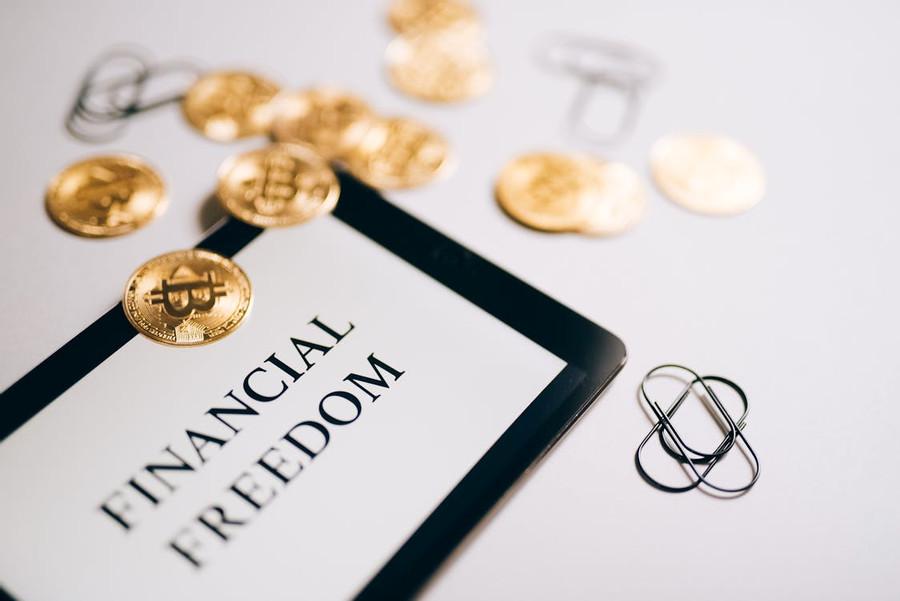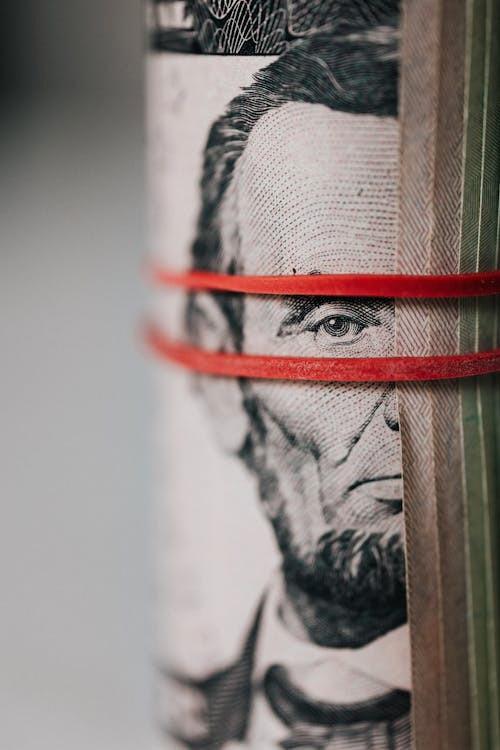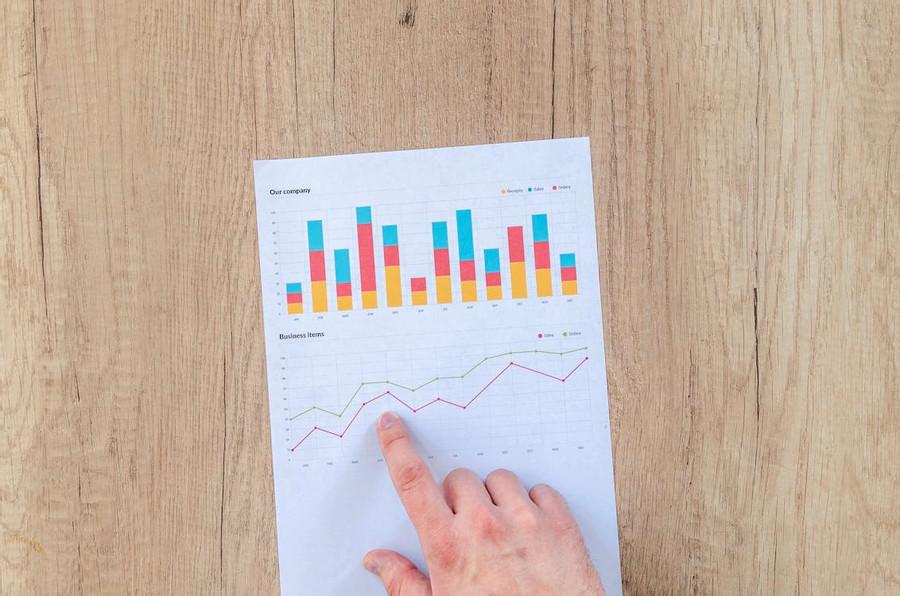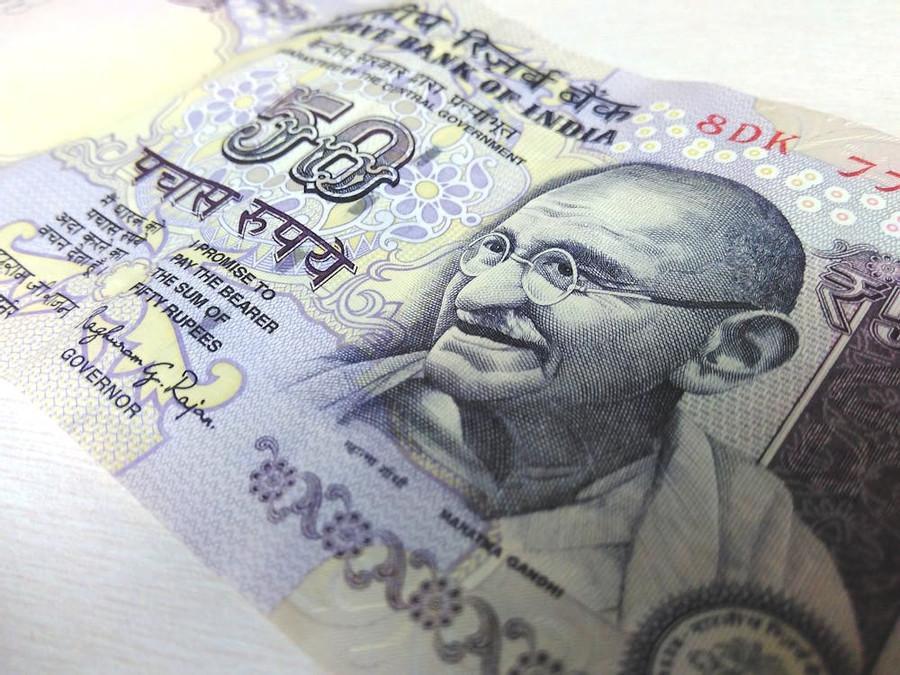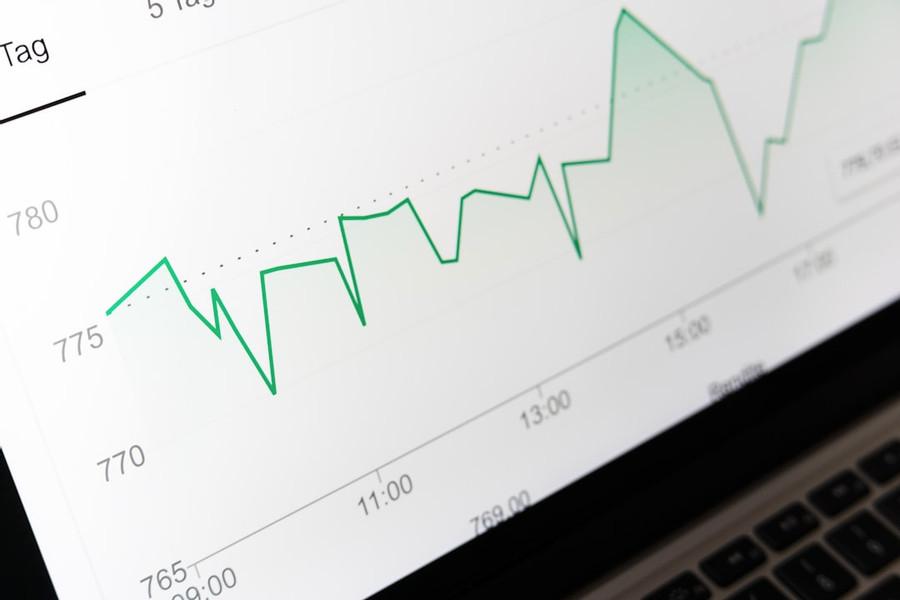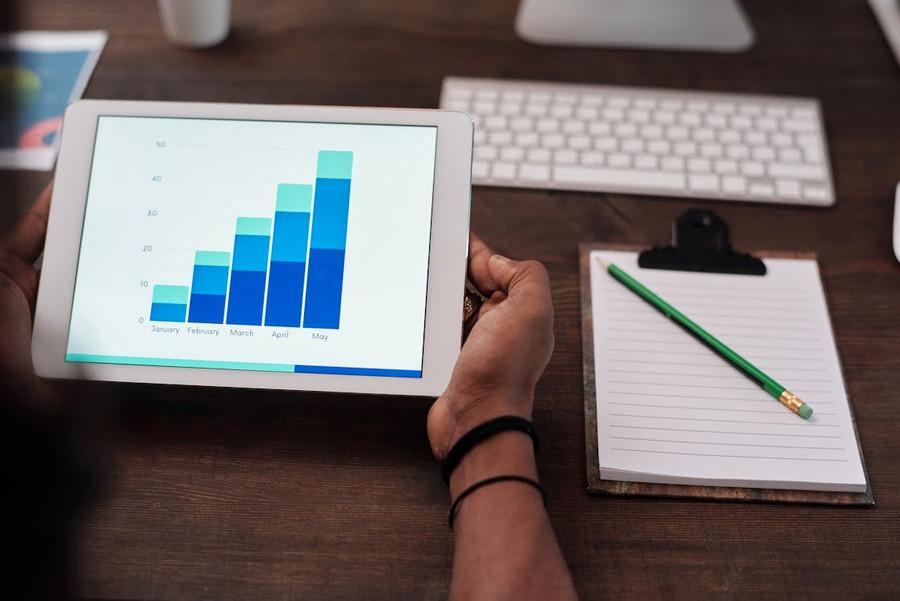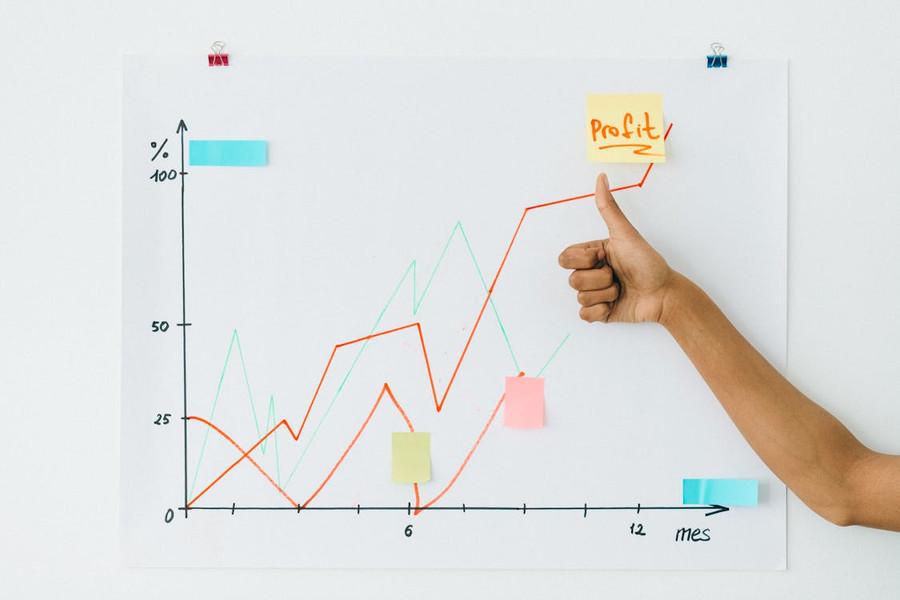Explore the World's Best Ideas
Join today and uncover 100+ curated journeys from 50+ topics. Unlock access to our mobile app with extensive features.
Key Takeaways From The Book
- Visualize your earnings and calculate your net worth to make peace with your financial past.
- Calculate your true hourly wage and keep track of your spending.
- Make a list of your monthly expenses and categorize them.
- Examine how much money was spent in each of your subcategories.
- To keep track of your progress, make a wall chart.
- Reduce or eliminate your spending consciously.
- Increase your income to value your life energy.
- To obtain Financial Independence, you must generate income from your investments.
- Investigate and select your investing alternatives.
941
9.63K reads
We Value Money More Than Our Lives
If you were held at gunpoint and had to pick between handing over your wallet or risking your life, you'd probably choose the latter.
However, most of us unintentionally put our money over our lives when it comes to the daily grind. We're trapped in a loop of working to gain money so we can buy things we don't need, and we're sacrificing our actual goals in the process.
Financial independence is the power to choose how to spend your time without relying on paid work.
835
6.77K reads
Confronting Your Financial Past
You must confront your financial history in order to gain control of your finances. As a result, making peace with your financial past is the first step toward transforming your relationship with money and achieving Financial Independence.
Calculating the money that has come into your life will help you develop a better understanding of your financial history and connection with money.
772
5.65K reads
Visualize Your Earnings and Calculate Your Net Worth to Make Peace with Your Financial Past
Add up all of your gross earnings over the course of your life. This sum should contain everything you've earned from your first paycheck to the most current pennies.
Figure out how much money you have today: your net worth. Everything you own, from large belongings like your car or house to items that could be sold at a garage sale, is included in your fixed assets.
Calculate your obligations, which include any outstanding debts, loans, or payments. To calculate your net worth, subtract this sum from the total value of your assets.
775
4.32K reads
Your Life Force Is Money
Each of us has fewer than 9,000 hours in a year, most of which is spent sleeping. Time is, without a doubt, our most valuable resource. As a result, when you get up in the morning and go to work, you're offering more than simply your time in exchange for a wage. You're putting your life's energy into it. To put it another way, when you spend money, you're effectively exchanging your life force.
803
4.55K reads
Calculate Your True Hourly Wage and Keep Track of Your Spending
Calculate your real hourly income by determining the actual amount of time and money that goes into maintaining your employment in order to determine your life-energy-to-earnings ratio.
You’ll have a better notion of how much life energy your expenditure is worth now that you know your true hourly income. Start keeping track of every dime that comes into or out of your life to properly understand your spending habits.
You may make spending decisions based on reality rather than what you think you spend if you become aware of your spending habits.
776
3.46K reads
Breaking Down Your Spending Into Categories
You must be aware of how you spend your money.
You have to break down your monthly spending into categories. Organize your spending in the most logical method for you.
Example: Your monthly food costs, which include eating out and ordering in.
761
3.39K reads
Make a List of Your Monthly Expenses and Categorize Them
Create a monthly tabulation that lists your subcategories after you've categorized your spending categories. Include a space at the bottom of the table to detail your income.
Subtract your total expenditure from your total income to discover your monthly savings once you've put your monthly transactions into each area.
Let’s say you spend $80 on publications you don’t read, and your hourly pay is $10. The realization that you spent eight hours of your life energy on the purchase may cause you to reconsider your decision the next time you pass a magazine stand!
782
2.62K reads
The Hypothetical Question Of Livelihood
Take a moment to write in a journal about what you would do if you didn't have to work.
Remember, there is no such thing as an impossible dream. And you'll be well on your way to achieving it by making simple changes to your spending. Access your spending by asking yourself these questions:
What did you want to be when you were a kid? What would you do if you just had one more year on this planet? Have you always wanted to write a book but now make a livelihood copywriting?
800
2.59K reads
Examine how Much Money Was Spent in Each of Your Subcategories
Examine the monthly tabulation to see if the amount of life energy you put into each of your subcategories corresponds to the level of fulfilment and satisfaction you experienced.
You may find that you've felt so fulfilled that you're considering raising your life energy expenditure. If this is the case, add a plus sign to the subcategory. Mark a minus sign for the category where you felt little to no fulfilment. Mark the expense as 0 if it feels neutral.
759
2.26K reads
Your Life Purpose And Values
Does your life energy expenditure match your life purpose and values?
Let's pretend you squandered 25 hours of your life energy on eating out last month. You may discover that this reflects your value for social time or delectable food; you are happy to spend the money. Perhaps you know that this outlay is the result of a bad habit or peer pressure; it is inconsistent with your principles or life purpose. To indicate your evaluation, mark each subcategory with a plus, minus, or zero once more.
770
2.27K reads
We Spend More Because Of Our Jobs
if you were financially independent and didn’t have to work, how would you adjust your spending habits? Would you buy more or fewer clothes if you had the option? Should you spend more or less money on gas?
In many circumstances, you may discover that your employment causes you to spend more money than you would otherwise.
758
2.44K reads
Keeping Track Of Your Progress
The most vital technique for continuing success is to keep track of your progress.
Making oneself accountable to someone else is a terrific method to inculcate a new behaviour. You might try informing a friend or family member about your financial progress.
749
2.2K reads
Make a Wall Chart
Draw a graph to track your monthly income and expenses on a large piece of paper that you can display on your wall. Money is shown on the vertical axis, and time is represented on the horizontal axis in months. Start with 0 and leave enough leeway for your income to double while making vertical axis increases. For five to 10 years, the horizontal axis access should track your progress.
Use two distinct colours to track your monthly expenses and income at the conclusion of each month. Then, make a link between the points and the prior month's entry.
759
1.74K reads
Being Thrifty Isn't Cool But Essential
Being thrifty may appear unpleasant or out of date these days. More is more has become ingrained in us as a result of modern consumer society. Being thrifty was regarded as a virtue by everyone from Plato and Socrates to American historical giants like Benjamin Franklin, Robert Frost, and Ralph Waldo Emerson.
And you'll need to get used to the term if you want to achieve financial independence.
756
1.99K reads
The Meaning Of Frugality
Frugality is, at its core, about appreciating what you have. If you have ten gowns that you enjoy wearing over the years, it's fantastic! However, if you're a compulsive shopper who is simply addicted to purchasing clothes that remain unused in your wardrobe, it may be time to cut back on your spending.
One has to intentionally minimize your monthly expenditure after you've developed awareness of your financial past and present.
754
2.03K reads
Reduce or Eliminate Your Spending Consciously
Using your life energy wisely means consciously minimizing or eliminating your spending. There are several options for reducing your expenses. The most obvious is to stay away from the stores. You won't be tempted to impulse buy if you don't go inside stores.
Unsubscribe from advertising emails, be cautious of marketing on social media and cultivate a general habit of buying only what you need to decrease the temptation to purchase online.
754
1.75K reads
The 40 Hour A Week Mindset
The 40-hour workweek is a concept that originated in Western culture.
New production processes during the Industrial Revolution created a distinction between workday and leisure time. Working conditions deteriorated to the point where workers lobbied for a shorter workweek. Instead of being viewed as a time to relax, leisure has evolved into a time to learn how to be a more effective worker.
Free time became connected with unemployment during the Great Depression. This Depression-era mentality still pervades Western civilization today.
745
1.98K reads
Increase Your Income to Value Your Life Energy
value your life energy and increase your income. Consider the following: Is the amount of life energy you're now investing in your career a reasonable trade-off for what you're getting in return?
Getting the best possible salary in accordance with your health and ethics isn't about desiring more money for the sake of it, whether you're saving for grad school, supporting your family, or getting out of debt. It's all about ensuring a long-term future.
757
1.74K reads
Financial Independence Retire Early(FIRE)
- For many people, the idea of retiring early appears to be a privilege reserved for the top 1% of the population. FIRE, or Financial Independence Retire Early, is a burgeoning movement that proves otherwise.
- FIRE supporters have gained some simple wisdom: if you invest your savings, your money will ultimately start earning enough on its own for you to retire and focus on what matters most to you.
- The key is to accumulate sufficient monthly investment income.
763
1.81K reads
Generate Income from Your Investments
Make sure you have enough money in the bank to cover six months' worth of expenses before you begin investing. This liquid cash is both your emergency fund and the money you'll use to cover your monthly expenses.
Consider opening a savings account whenever you have at least six months of liquid cash in your bank account. You can now begin the program's eighth step: investing and tracking your additional funds.
765
1.79K reads
Investing And Tracking Your Additional Funds
Multiply your capital, or additional savings, by your current long-term interest rate to get the amount you can expect to get from a long-term investment.
Divide the result by 12 to get the final result. After you've followed the formula, put the result on your wall chart as a new line beside the lines that measure your income and expenses. Keep in mind that the vertical axis represents your money and the horizontal axis represents time.
When your income and expenses grow more stable, you'll be able to estimate how much money you'll need to achieve Financial Independence.
758
1.52K reads
The Upward Curve
Your money invested will cause the line to curve upward over time. You can follow this trend with a light pencil to find the point where your monthly investment income exceeds your monthly costs. This is referred to as the crossing point. For most people, the point at which their savings equal 25 times their annual costs is when they cross the threshold. If you spend $36,000 per year on average, you’ll need $900,000 in assets to achieve Financial Independence.
762
1.56K reads
Beware Of Shady Brokers
You'll need to become an expert in long-term, income-producing investment now that you've calculated your crossing point and the reality of Financial Independence has become tangible. Financial consultants, shady brokers, and salespeople will try to sway your investment selections while pocketing a large commission.
By empowering yourself to make your own investment decisions, you may avoid paying excessive fees to such middlemen.
741
1.45K reads
Select Your Investing Alternatives
Rent from real estate or royalties from intellectual property, franchises, or natural resources could be part of your investment income.
You can invest in low-cost index funds. ETFs, or exchange-traded funds, are index funds. Mutual funds that track the performance of stock or bond market indices are known as index funds. Index funds are a passive strategy for investing that diversifies your investments across a large array of trading activities, rather than beating the market or picking and choosing which stocks to invest in.
751
1.41K reads
Closing Thoughts
Evaluate your financial history as well as your present financial condition before embarking on your journey to Financial Independence.
Realizing that the money you earn from your job correlates to your life energy is the first step in changing your relationship with money. To retire early, pay off debt, achieve your financial goals, cut your expenditure, raise your income, and invest your money.
752
1.64K reads
IDEAS CURATED BY
CURATOR'S NOTE
Time, Money And Life: Attain financial freedom.
“
Rylee 's ideas are part of this journey:
Learn more about books with this collection
How to make rational decisions
The role of biases in decision-making
The impact of social norms on decision-making
Related collections
Different Perspectives Curated by Others from Your Money or Your Life
Curious about different takes? Check out our book page to explore multiple unique summaries written by Deepstash curators:
1 idea
Discover Key Ideas from Books on Similar Topics
10 ideas
I Will Teach You To Be Rich
Ramit Sethi
13 ideas
See You at the Top
Zig Ziglar, Al Mayton
24 ideas
Eat That Frog!
Brian Tracy
Read & Learn
20x Faster
without
deepstash
with
deepstash
with
deepstash
Personalized microlearning
—
100+ Learning Journeys
—
Access to 200,000+ ideas
—
Access to the mobile app
—
Unlimited idea saving
—
—
Unlimited history
—
—
Unlimited listening to ideas
—
—
Downloading & offline access
—
—
Supercharge your mind with one idea per day
Enter your email and spend 1 minute every day to learn something new.
I agree to receive email updates

